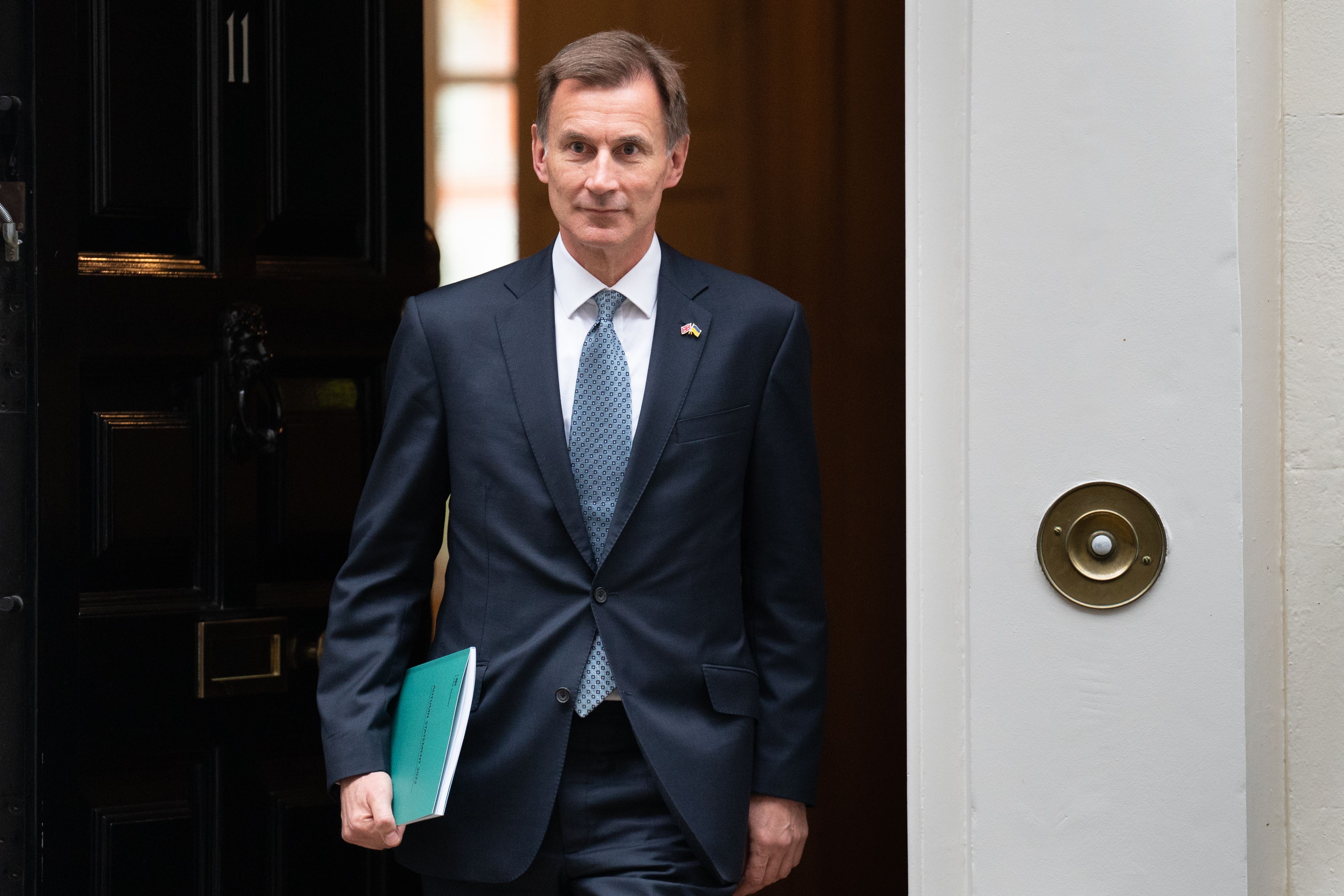Jeremy Hunt’s energy discount for firms: the cliff edge still looms even if it isn’t as steep
The discount, according to analysts’ estimates, might not be enough to stave off a crisis, especially if prices start to rise again, explains James Moore


The £13bn question facing Jeremy Hunt’s new energy bills discount scheme is this: can it survive a second spike in bills?
The current scheme, which runs to April, caps unit energy prices at a cost to the taxpayer of £18bn, which Hunt has argued is unsustainable. To ram home the point, the Treasury equated it to 3p on the basic rate of income tax.
The government also made the case that the taxpayer should not be in the business of providing indefinite subsidies to profit-making enterprises. However, it is worth remembering that public-sector bodies, such as schools and hospitals, along with third-sector organisations, will also have to grapple with the impact of much higher energy bills as a result of a much less generous scheme.
As the title makes clear, the replacement works as a discount, not a cap, with an accompanying threshold above which it kicks in, further limiting the cost. Extra support is available for energy-intensive businesses – those in the manufacturing sector, for example. The intention is to run it for a year at a cost to the taxpayer of £5bn.
Now, it is true that energy prices have fallen to the level they were at before Vladimir Putin invaded Ukraine. But they are still much higher than they were a year ago. Prices started spiking before the war broke out. Businesses and other organisations are going to have to shoulder a good deal more of the cost of that than they are at present.
The new scheme was put together with the aim of avoiding the “cliff edge” businesses would have faced from the overnight withdrawal of the cap.
But the assistance provided by the new scheme isn’t great. Here’s Jeffries, the broker, in a note published the morning after the announcement: “We estimate that the new subsidy will be equivalent to a 15 per cent discount on the power/gas bill for energy-intensive industries, and by 5 per cent for other businesses.” Costs, it said, would “remain significantly higher than April 2022 levels despite the subsidy”.
There is, then, still a cliff. It just isn’t as high as it would be been in the absence of the discount. Those affected have been given a brolly in lieu of a parachute to help with the landing.
Hunt’s hope is that his plan will limit the number of fatalities; that his brolly will work like they do in Hanna-Barbera cartoons. Bugs Bunny always lands on his feet when he opens his umbrella. Trouble is, this is no toon town. How many firms will 5 per cent save in reality?
It is helpful for Hunt that the transition takes place in the spring, when energy use is lower. But what happens if prices start trending higher in the autumn? That is when things could get nasty. Will the chancellor be able to resist putting his hand in his pocket again?
Let’s not forget inflation (how could we). Firms will obviously try to pass on the increased costs they face from April to their customers. This will stoke inflation. How bad will the hit from this be? That is Hunt’s other big problem.
Behind this announcement there is a lot of finger-crossing. Hunt is basically at the craps table, dice in hand, hoping the markets do him a favour.
Small wonder that the reaction of business groups was mixed to negative. While they knew something nasty was coming and were resigned to the original scheme’s end, the frustration over the government’s dilly-dallying was palpable, and they’re not overjoyed with the result. It was compared unfavourably with what’s happened in Germany in particular.
The most negative responses came from groups whose primary focus is smaller firms, but also from organisations such as the Local Government Association. It is worried about the impact on, for example, council leisure centres, which are highly energy-intensive but won’t qualify for the higher rate of help.
But really, they’re all worried. With good reason.
The argument that government shouldn’t be in the business of indefinitely subsiding the energy bills of buisness is indeed sound. But firms might very well counter that Britain wouldn’t be in such a bad position if ministers had paid more attention to energy security in the past. It is their complacency that left Britain so badly exposed to the swings of the international wholesale energy markets.
That complacency needs to end. There is a lot of work to be done in the medium to long term – but also, perhaps, in the short term, if the markets turn against Britain again.






Join our commenting forum
Join thought-provoking conversations, follow other Independent readers and see their replies
17Comments